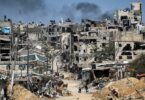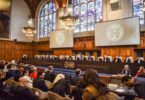Sidra Shafaqat
No outdoor activities, No flights, no trains, 6 feet distance that we have to maintain but why? For the reason, that it is time to fight with an invisible enemy ‘COVID-19’. All over the world, the deadly virus is affecting lives of people irrespective of any discrimination between rich or poor economies. World Health Organization has officially declared the outbreak a pandemic. Countries are imposing strict measures to control the spread of coronavirus.
In Pakistan, total 1102 cases are reported on March 26, 2020 by National Institute of Health (NIH) with 7 confirmed deaths. The risk assessment of this disease is also high. In this scenario, government forced the lockdown in all regions of the country up to approximately two weeks. Public transport, markets, parks, offices and other public spots will remain close. Health professionals are doing their best to combat the COVID-19 outbreak in Pakistan. All the available resources are being utilized by government. Hence in a country with one of the lowest public health expenditures as percentage of GDP in the world, it is of utmost importance to limit the number of infections as much as possible.
However, this is just one side of the situation. On the other hand, the economy is also battling against COVID-19. A controversial debate is that whether the country should be under the situation of lockdown or not? Most of the countries have closed down their borders and implemented nationwide lockdown. India has announced 21-days nationwide lockdown with 1.3 billion people confined to their homes, likewise a 21-day lock down in South Africa, Italy with the highest death toll in world has imposed lockdown on March 10 restricting 60 million citizens to their homes, France, Spain, Norway and New Zealand are also following the same strategy, as well as on March 23, UK went into full lockdown.
Here, the need is to evaluate whether an economy like Pakistan can afford the nationwide lock down or it’s a way towards another trouble of economic downfall. Is financial situation of our economy able to feed the population without any economic activity? Prime Minister Imran Khan also stated that a complete lockdown in country is not a feasible solution as 25% of the population lives below the poverty line. It would make their lives miserable.
Economic activities are crippled. The virus has killed off the stock market gains. Federal secretary commerce said that exports orders had got cancelled and due to this export loss can be in the range of $2 to $4 billion. FBR is already facing massive revenue shortfall. The estimated collection of revenue till June 2020 is just Rs 4.4 trillion as compared to the FBR’s annual target of 5.555 trillion. Former finance Minister Dr. Hafiz Pasha indicated that unemployment rate of 5.8% reported by Labor Force Survey 2017-18 may surge to 8.1% in fiscal year 2020-21.
In order to tackle the situation, the economic relief package of 900 billion ($5.6 billion) rupees is approved by PM on March 24. Out of this, 200 billion rupees ($1.25 billion) are assigned for low income groups, particularly for laborers, along with 280 billion rupees ($1.76 billion) for wheat procurement. Whereas, a package of 100 billion rupees to support agriculture sector and small industries. Furthermore, PM stated said that over 5 million people will be provided a monthly stipend of 3,000 rupees ($20) for next four months.
Now there is serious requirement to do a cost benefit analysis. The cost includes the aforementioned economic downfall through nationwide lockdown whereas benefit in terms of reduction in COVID-19 positive cases and lower number of fatalities.
Another unintended benefit is the reduction in the pollution level in the cities due to the closure of factories, public transport and reduced human activity. Environmental experts have identified the improvement in Air Quality Index (AQI) of Karachi under the lockdown in Sindh due to coronavirus. The AQI in Khyber-Pakhtunkhwa has also dropped showing healthy air quality. This improvement is also expected in other major air polluting cities i.e. Lahore.
Along with all this, it is a major responsibility of citizens to self-quarantine and provide government a loose hand to gear some economic activities in a proper manner under the war of COVID-19.






